No scuba diver wants to use their air the fastest and tell their buddy it’s time to surface and get the tanks filled.
While there are many different reasons why divers will use their air at different rates, the one thing that nobody can change is that the deeper you go, the faster you will use your air supply.
To solve this, you could only make shallow dives, but we think it’s more interesting to understand the process to go deeper with the correct information.
We’re going to see that as you go deeper, your regulator has to supply you with air that matches the surrounding water pressure.
As water pressure increases with depth, this means that every time you inhale, you are breathing denser air.
Because the air is denser (more concentrated), you will empty your tank faster.
If that all sounds like a foreign language, then read on as we will take you through all the reasons why scuba divers use more air at depth.
- Why Do Scuba Divers Use More Air the Deeper They Go?
- Does My Body Really Need More Air at Depth?
- Does Air Consumption Increase Proportional to Depth?
- Why Does Partial Pressure of Oxygen Increase With Depth?
- Does Gas Consumption Depend on the Gas Mix?
- Does My Equipment Affect My Air Usage at Depth?
- Can I Estimate in Advance How Much Air I Need at Depth?
- Do I Need Additional Air Tanks to Dive Deeper?
- 4 Tips To Lower Your Air Usage at Depth
- Which Other Factors Besides Depth Influence My Air Consumption?
- Conclusion
- You Might Also Like…
Disclosure: this post contains affiliate links (clearly marked with ), which means we may earn a commission if you buy something through them, at no additional cost to you.
Why Do Scuba Divers Use More Air the Deeper They Go?
If you are standing at sea level, you are under a small amount of pressure from the weight of all the air above you.
Air doesn’t weigh that much, but there’s enough between sea level and space (about 60 miles) that it adds up, and we call the pressure that air exerts 1 atmosphere (1 ATA).
It’s probably obvious that water weighs a lot more than air.
Just 33 feet / 10 meters of saltwater exerts the same amount of pressure as all that air above you.
This means that as you go deeper underwater, the pressure you are under increases rapidly.
Every 33 feet / 10 meters of saltwater adds another 1 atmosphere of pressure.
| Depth | Pressure |
|---|---|
| 0 feet / 0 meters (at the surface) | 1 atmosphere (1 ATA) |
| 33 feet / 10 meters | 2 ATA |
| 66 feet / 20 meters | 3 ATA |
| 99 feet / 30 meters | 4 ATA |
| 132 feet / 40 meters | 5 ATA |
To understand how this increases the rate at which we use our air when diving, we need to know how pressure affects us underwater.
Our bodies are primarily liquid, and the pressure as we dive deeper cannot compress liquids.
So you don’t need to worry about getting squashed when scuba diving.
However, gases can be compressed, which is a good thing as otherwise, the typical tank that we use to go diving wouldn’t last long.
This also means that our body’s air spaces, particularly our lungs, will get compressed smaller as we go underwater unless we do something about it.
Gases have a three-way relationship with pressure, volume (the amount of space it takes up), and density (how close the molecules are together).
If you apply pressure to a gas in a sealed container like a balloon, its volume will get smaller, and the density will increase.
So without doing something, our lungs would get smaller when we descend to scuba dive.
If we were trying to breathe air from the surface, then quite quickly, the water pressure around us wouldn’t let us inhale.
Thankfully, the scuba regulator takes the compressed air in our tank and delivers it to us at a pressure that matches the water surrounding us so we can breathe.
Because this air is at a higher pressure, and our lung volume will stay as usual, and the breathing air density will increase.
Simply put, this means that the deeper you go, the air you breathe will be denser, so you are inhaling more air molecules per breath.
So why do you use your air faster?
Your scuba tank has been filled with air compressed to about 3,000 pounds per square inch or about 200 ATA.
So while a standard scuba tank might only be 0.39 cubic feet in internal volume, when it’s filled to its working pressure, that’s the equivalent of about 80 cubic feet or 2,200 liters of air at the surface.
We can call this total volume the total supply of air that we have.
Remember that your regulator gives you air to breathe at the pressure and destiny related to how deep you are.
Because the air is denser, and the gas molecules are closer together, for every breath you take underwater, you are inhaling more of your air supply than you would for the same breath at the surface.
For example, at 33 feet / 10 meters, where the pressure is twice that at the surface, the air you breathe will be twice as dense.
Accordingly, your cylinder will last half as long, assuming all other things like exertion and breathing rate are the same.
Does My Body Really Need More Air at Depth?
The air that we breathe gives us all the oxygen that we need for our body’s functions and more.
We use oxygen during the process to convert the food we’ve eaten into energy (called metabolism).
We only use a small amount of the oxygen we inhale with each breath, and carbon dioxide is exhaled as a waste product.
| Gas | Normal Air | Exhaled Air |
|---|---|---|
| Nitrogen | 79% | 79% |
| Oxygen | 21% | 16% |
| Carbon Dioxide | 0.03% | 4% |
The nitrogen percentage does not change as our bodies do not use it.
Underwater the situation remains the same.
It’s not that we need more air specifically, but we need to breathe in the same volume to allow gas exchange in our lungs to take place.
Because our bodies are under pressure, every breath to fill our lungs will be denser than we breathe in at the surface.
So there will be more oxygen molecules inside every breath.
For this reason, it’s common to think that we could accordingly take fewer breaths per minute.
Unfortunately, this isn’t the case for two reasons.
Firstly, our blood is already carrying as much oxygen as it can (called saturated) when we’re breathing at normal atmospheric pressures.
Just because more oxygen is available by the increased density, it doesn’t mean that our bodies can take it in.
Secondly, our breathing reflex is mainly controlled by the build-up of carbon dioxide in our blood.
As carbon dioxide is still present, our bodies will breathe at a similar rate as they would at the surface.
So we don’t need more air, but we need to breathe in at the same volume, which means we will use more of our total supply the deeper we are.
Does Air Consumption Increase Proportional to Depth?
As depth increases, the pressure around us increases, and so the denser the air will be that we are breathing.
How long our air will last will be directly proportional to how deep we are, assuming all other things like exertion and breathing rate are the same.
| Depth | Pressure | Gas Density Compared to Surface | How Long Your Air Will Last Compared to at the Surface |
|---|---|---|---|
| 0 feet / 0 meters | 1 ATA | 1 x | 1 x |
| 33 feet / 10 meters | 2 ATA | 2 x | ½ as long |
| 66 feet / 20 meters | 3 ATA | 3 x | ⅓ as long |
| 99 feet / 30 meters | 4 ATA | 4 x | ¼ as long |
| 132 feet / 40 meters | 5 ATA | 5 x | ⅕ as long |
Why Does Partial Pressure of Oxygen Increase With Depth?
Air is a mix of many gases:
- Nitrogen: 78.084%
- Oxygen: 20.946%
- Argon: 0.934%
- Carbon Dioxide: 0.033%
There are other gases in small percentages, including neon, helium, krypton, hydrogen, xenon, and carbon monoxide, totaling about 0.003%.
When we talk about mixed gas pressures, the concept of partial pressure describes the part of the total pressure that an individual gas has.
Remember that at the surface, there is a total pressure of 1 ATA.
For ease of working, let’s say that oxygen is 21% of air.
This means that oxygen makes up 21% of the total surface pressure of 1 ATA.
So the partial pressure of oxygen at the surface is 0.21 ATA.
As you increase your depth underwater, the total pressure of air will increase proportionally.
So the Partial pressure of oxygen will increase accordingly.
The oxygen percentage in the air stays the same at 21%, but the partial pressure increases as you go deeper.
| Depth | Total Pressure | Partial Pressure of Oxygen (PPO2) |
|---|---|---|
| 0 feet / 0 meters | 1 atmosphere (1 ATA) | 0.21 |
| 33 feet / 10 meters | 2 ATA | 0.42 |
| 66 feet / 20 meters | 3 ATA | 0.63 |
| 99 feet / 30 meters | 4 ATA | 0.84 |
| 132 feet / 40 meters | 5 ATA | 1.05 |
This increase in partial pressure is the main reason why scuba divers don’t breathe pure oxygen.
A dangerous problem called oxygen toxicity can occur if a diver exceeds an oxygen partial pressure of 1.4.
This could occur with air at depths past 180 feet / 55 meters.
Does Gas Consumption Depend on the Gas Mix?
The need to breathe is mainly related to the build-up of carbon dioxide, a product of metabolism.
CO2 will be present irrespective, so gas consumption won’t change noticeably when breathing different gases like enriched air nitrox or helium trimix.
Does My Equipment Affect My Air Usage at Depth?
The most significant effect your equipment will have on your air consumption is when you need to add air to your BCD to compensate for changes in buoyancy as you go deeper.
The deeper you go, the more air you will add to your BCD.
How much you will need to add will depend on how thick an exposure suit you are wearing and how much buoyancy it loses as you descend.
Typically, thicker wetsuits need more lead weights to leave the surface and will need more air to be added to compensate the deeper you go.
Similarly, if you dive with too much lead weight, you will be wasting even more air than necessary to control your buoyancy.
Can I Estimate in Advance How Much Air I Need at Depth?
It is possible to estimate how much air you’ll use by doing a test underwater.
You can work out your surface air consumption (SAC rate) and then calculate how much air you might use at a given depth.
The best way to do this is to swim at 33 feet / 10 meters underwater at an average pace for ten minutes.
You record how much air you started with and how much you ended with, and work out how many psi or bar you used.
Divide that by ten as you swam for ten minutes, and you get the tank pressure that you breathed per minute.
Then divide by two as at 33 feet / 10 meters, you are at twice the pressure that you would be at the surface.
This gives you your surface air consumption.
It’s more accurate to make this test while scuba diving at 33 feet / 10 meters rather than swimming at the surface.
You can then use your SAC rate to determine how much air you would use at a particular depth.
For example, if you calculated your SAC rate at 30 psi / 2 bar per minute, then at 66 feet / 20 meters where there is three times the pressure, you would expect to use 90 psi / 6 bar per minute.
This simple calculation assumes that your cylinder stays the same size for your dives which is typical for most people.
Do I Need Additional Air Tanks to Dive Deeper?
The limiting factors that control a recreational scuba dive include:
- The amount of gas carried
- The no-decompression limit for the depth
- The water temperature
- The planned maximum dive time
For divers with especially high air consumption, taking a larger tank may be the solution to allow them to dive deeper.
However, we have to take into account the other limiting factors.
The most important limiting factor is the no-decompression time that controls how long a recreational diver can stay at depth.
The deeper you dive, the shorter the no-decompression time will be.
For example, a dive to 132 feet / 40 meters will have a maximum no-decompression time of just 8 minutes, making it a very short dive irrespective of how large or how many tanks you carried.
Technical divers carry extra tanks to remain longer underwater, but this requires special training.
4 Tips To Lower Your Air Usage at Depth
1. Slow Down
You should always move slowly and efficiently underwater, but this is particularly important deep where every breath you take will be using a more significant amount of your total air supply.
2. Control Your Buoyancy
Many people try to save air by not adding it to their BCD.
This ends up being a false economy as they will end up breathing harder to control their depth.
3. Don’t Dive Over Weighted
Diving with too much lead is a guaranteed way to use more air than you need to.
You’re more likely to overexert and will need to add more air to your BCD to compensate.
4. Breath Correctly
When diving deep, you might find it a little harder to breathe than usual due to the air’s increased density.
It’s essential to try and breathe normally with slow deep breaths in and out to control your air consumption.
Which Other Factors Besides Depth Influence My Air Consumption?
Many factors will affect how much you will use compared to other divers.
As well as trying the above tips, the following can all be worth considering.
However, there also comes the point where different people just use different amounts of air.
While you should always try to improve, it shouldn’t be something that you should be overly worried about once you’ve tried everything.
Experience
Beginners will almost always use more air than other divers.
The more experienced a scuba diver is, the more likely they are to have good trim and buoyancy control and be comfortable in the water.
Accordingly, the less air they will probably use.
Dive Often
As well as the amount of dives someone has done, the frequence that they dive will also influence their air consumption.
If you leave it a long time since your last dive, you’ll probably find that, to begin with, you’ll use much more air than you are used to.
Keep Your Equipment in Good Order
Make sure that your dive equipment is well maintained, so you don’t have any leaks.
Even small air leaks can make a big difference when you go deeper.
Fitness
Your physical condition can affect how much air you use.
While you don’t need to be a professional athlete to scuba dive, good general fitness will help improve your air consumption.
Fatigue
If you’re overly tired when you dive, you’ll probably use more air, so try and get a good night’s sleep.
Trim and Drag
A diver out of trim or that has equipment hanging off them is unstreamlined and will use more energy as they swim.
Accordingly, they will probably use more air, so try and maintain good trim and ensure that all your gear is tucked away.
Cold
You’ll breathe more heavily if you get cold, so make sure that you wear a suitable exposure suit for the conditions.
Conclusion
We’ve seen that all scuba divers will use more of their air supply the deeper they go.
While you can use less air by following general good diving practices, even experienced divers will use more air and have shorter dives.
Remember that going deep should always be for a reason and will always come at the cost of time underwater.
There’s nothing wrong with enjoying shallower dives to get in more scuba hours.
You Might Also Like…
-

How Do Scuba Divers Drink Water? 5 Possible Ways (+7 Tips)
-

How Long Can Scuba Divers Stay Underwater? (+9 Limiting Factors)
-
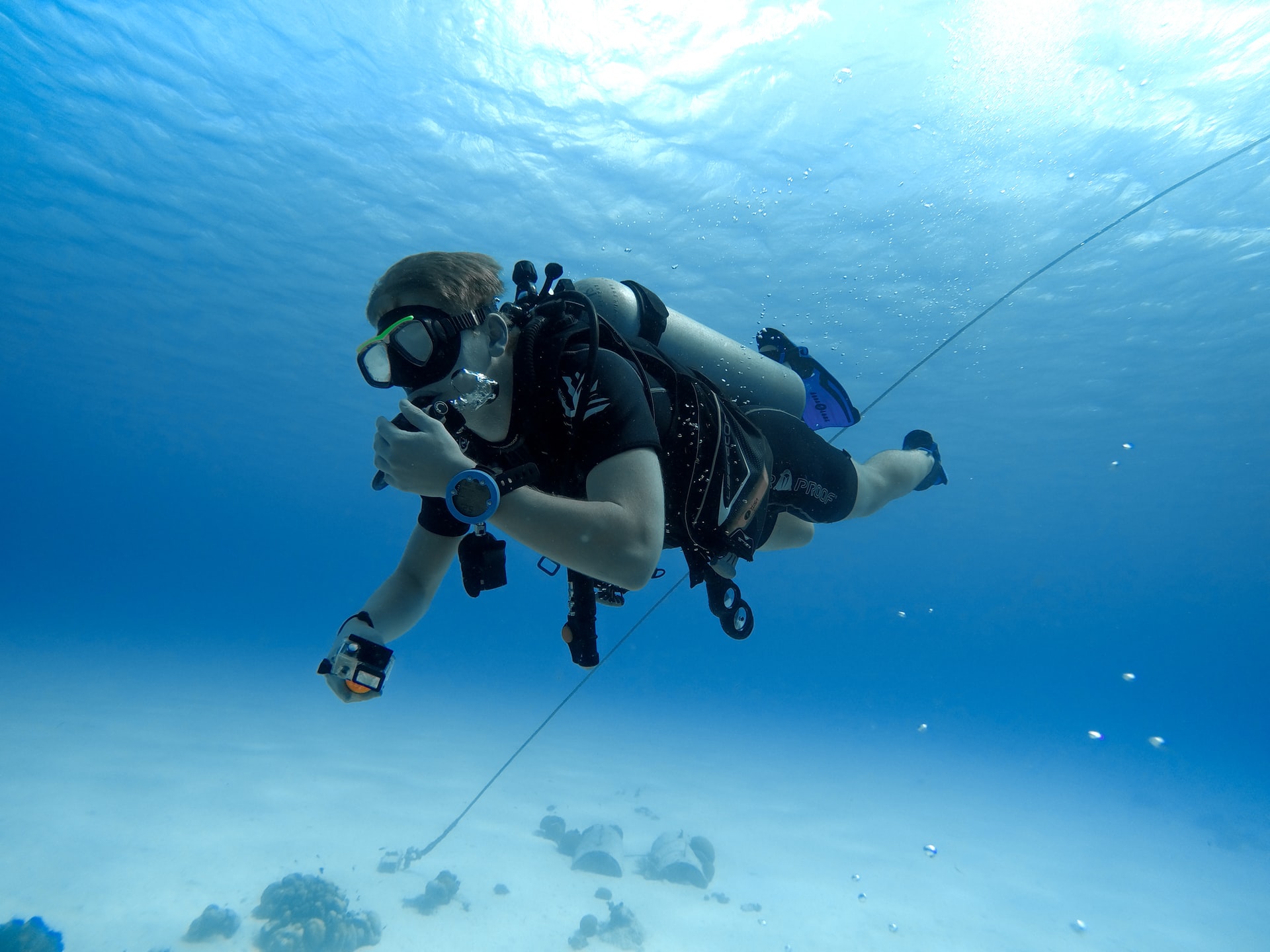
Are Scuba Divers Athletes? All the Facts (+New Competitive Forms)
-
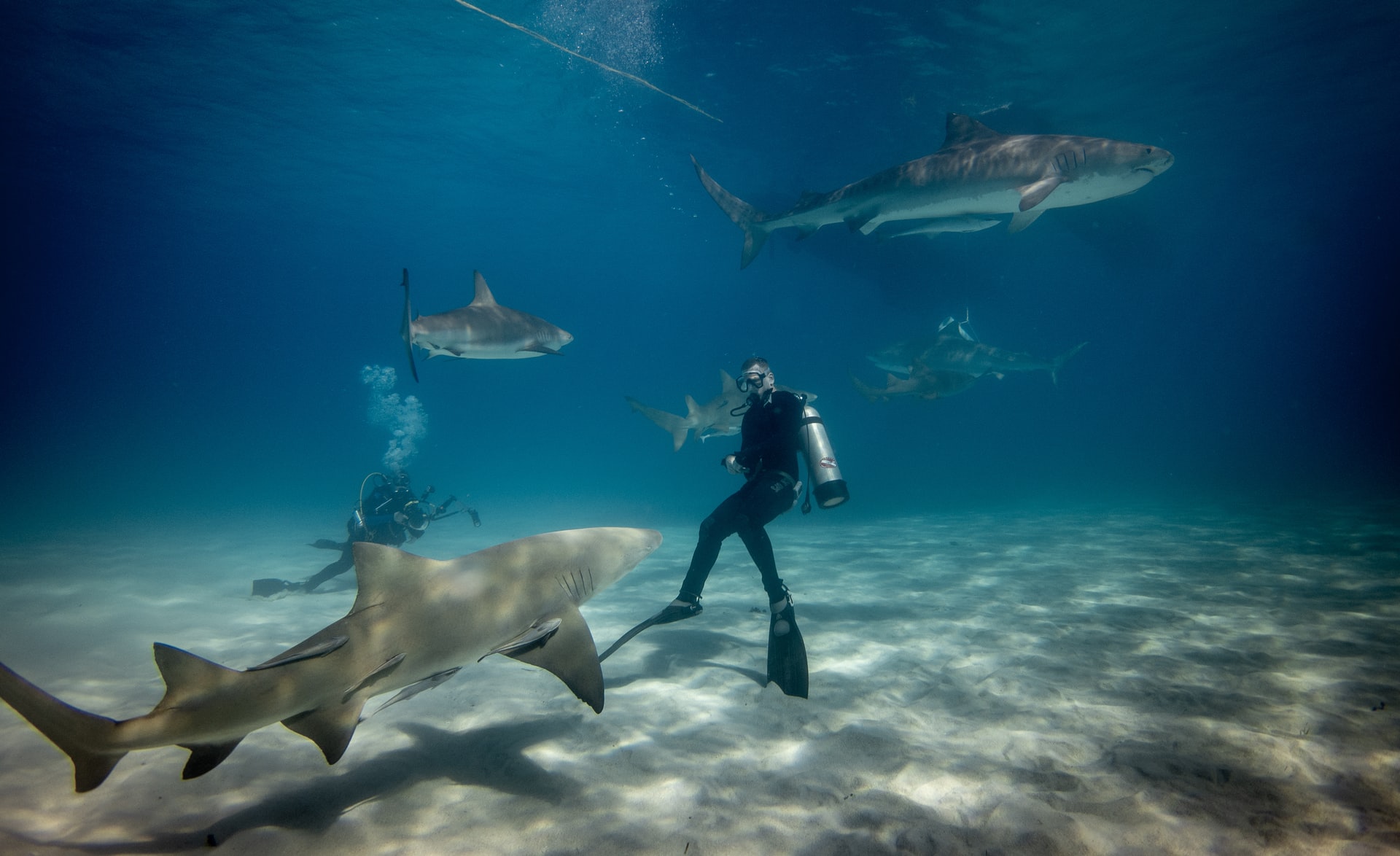
Are Sharks Scared of Scuba Divers? (What Every Diver Must Know)
-
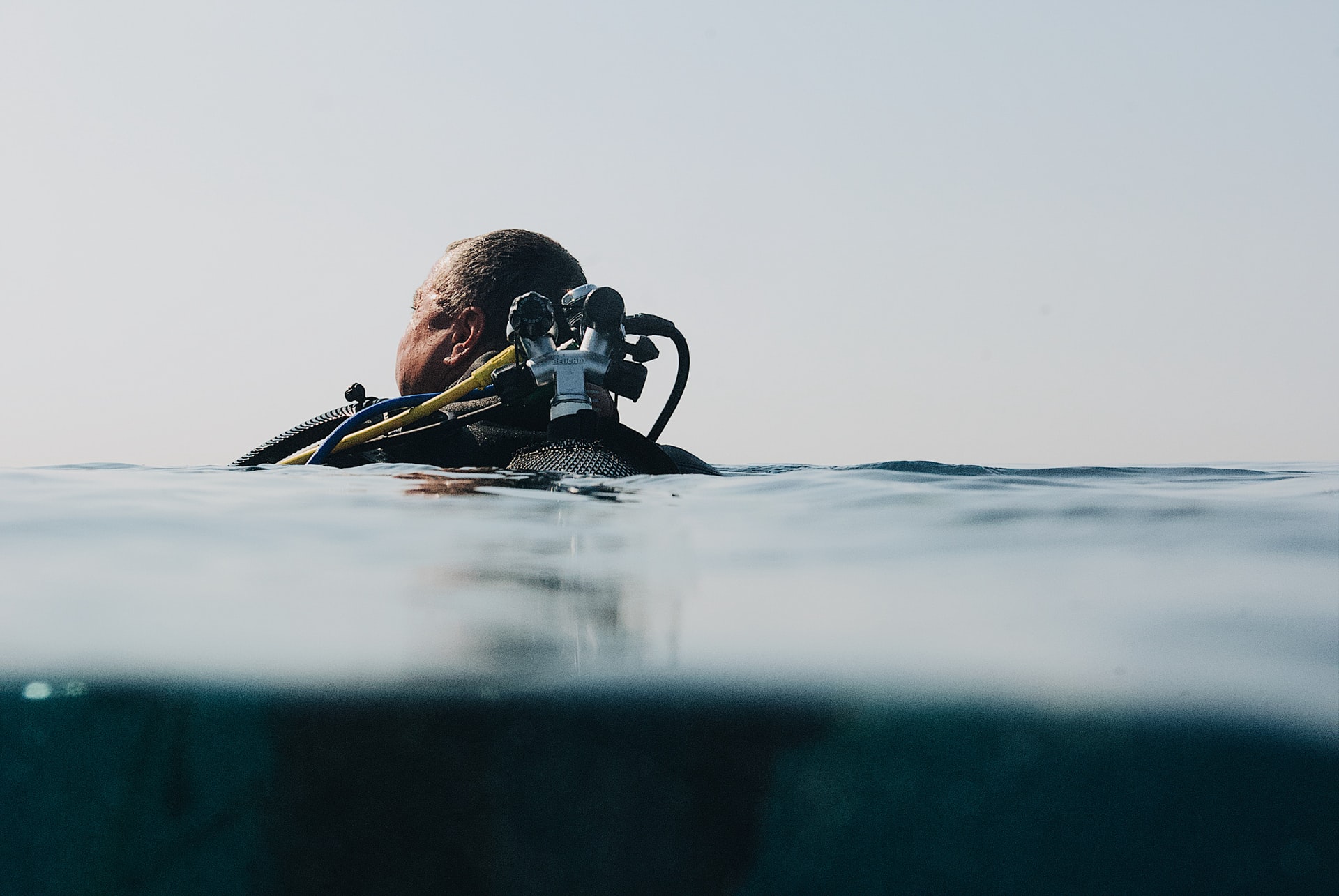
Who Should Not Scuba Dive? 17 Reasons (Every Diver Should Know)
-
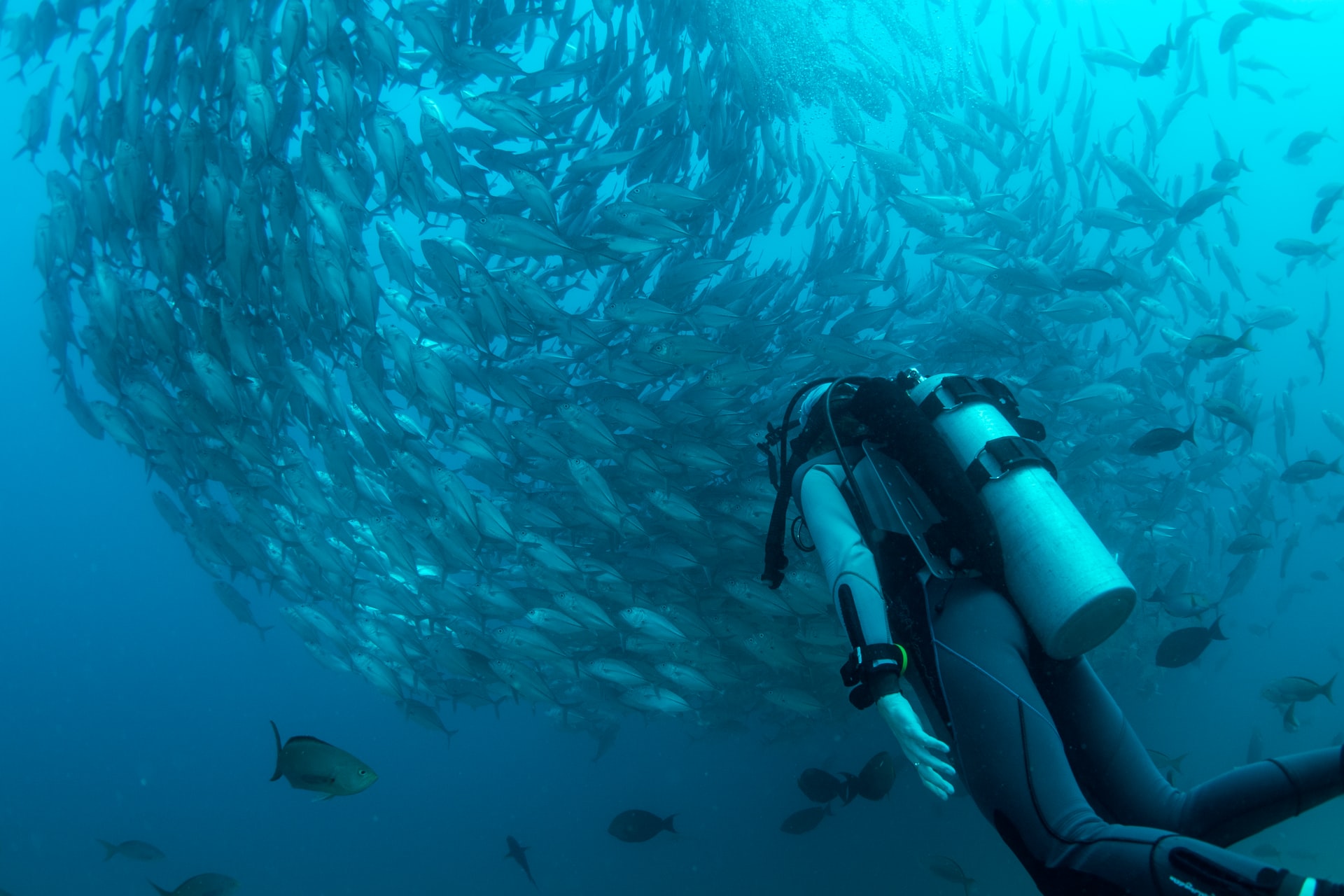
Should I Be Scared of Scuba Diving? 8 Common Fears (Debunked)
-
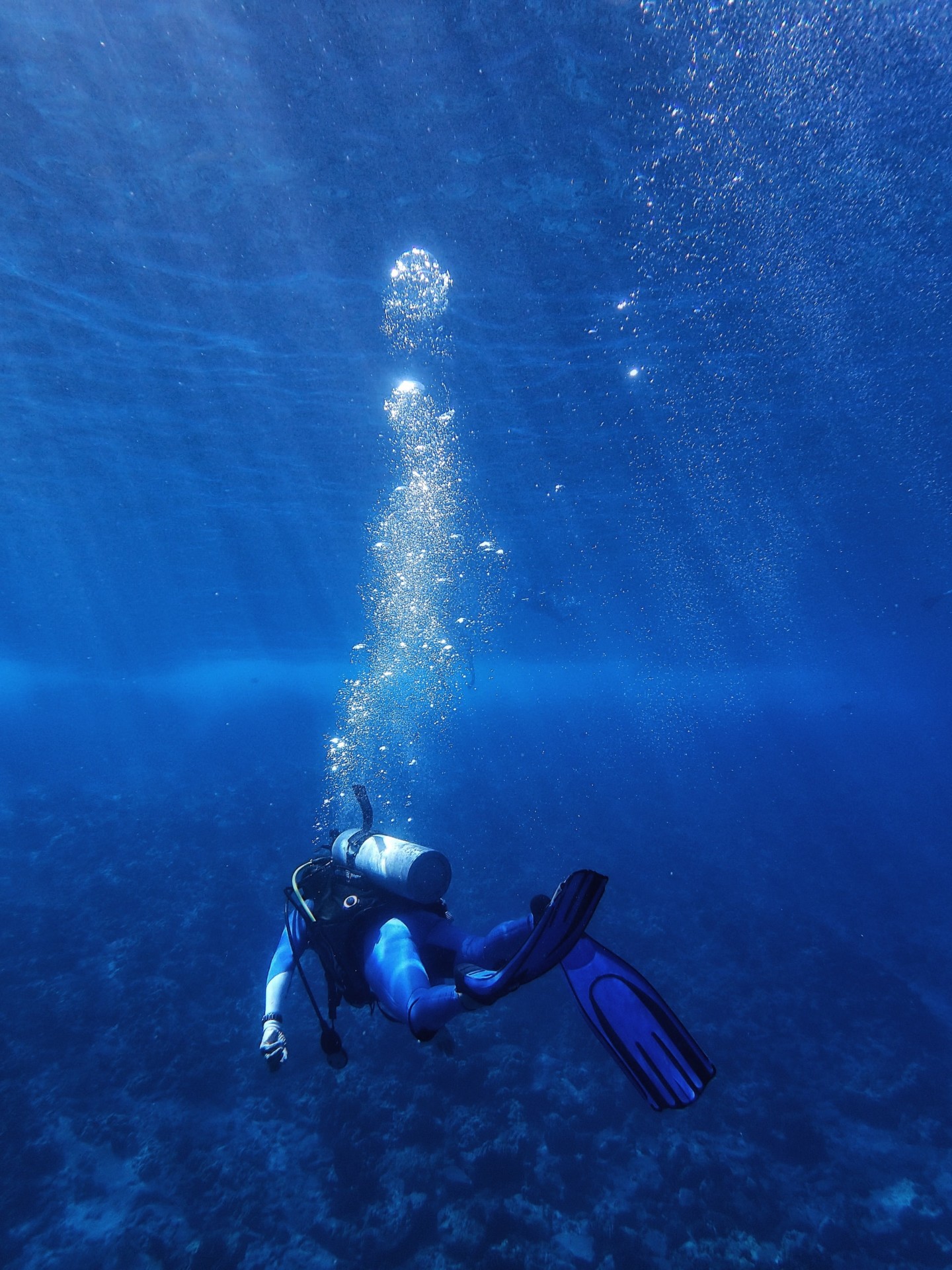
Why Do Scuba Divers Use More Air at Depth? (+4 Practical Tips)
-
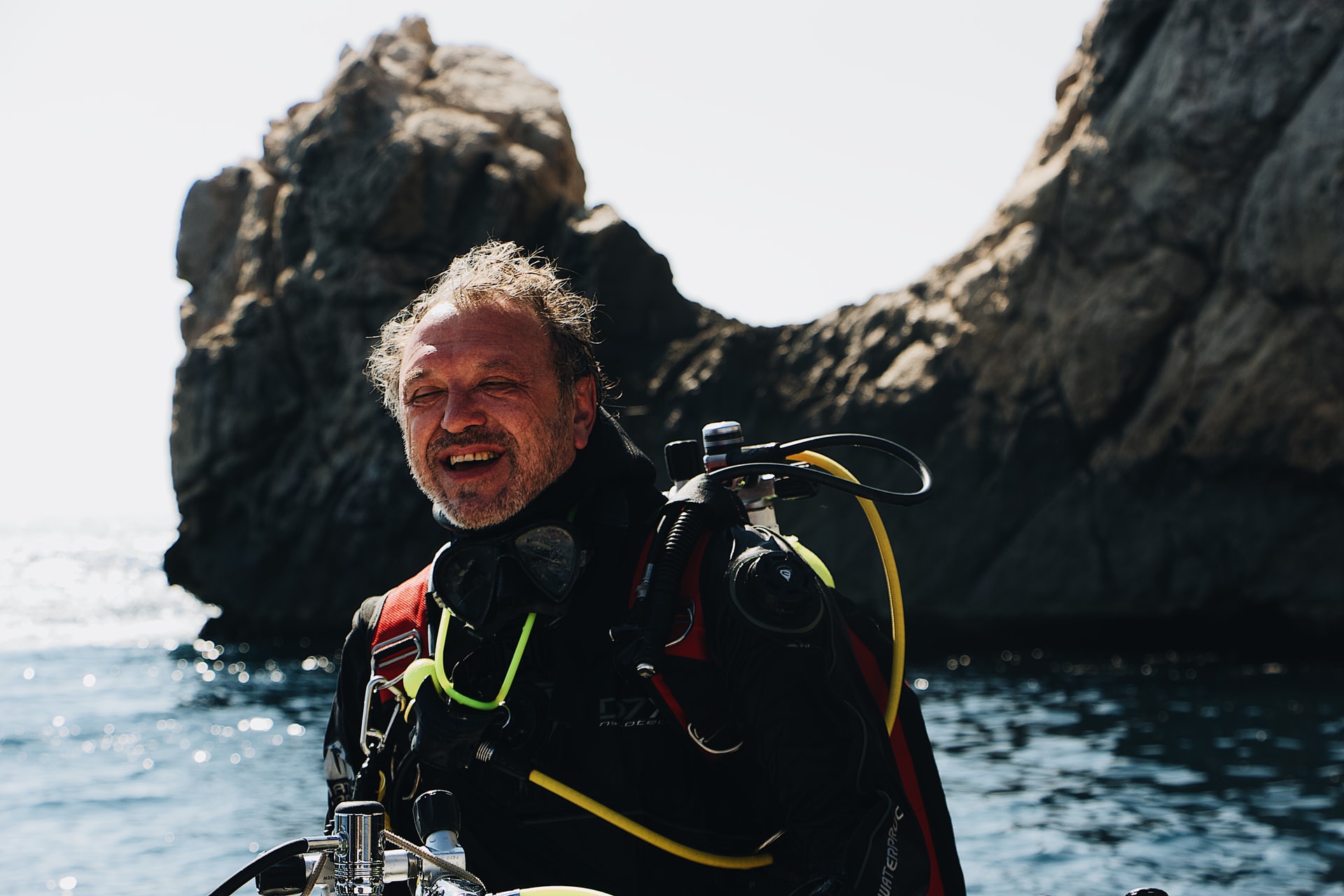
At What Age Should You Stop Scuba Diving? (+9 Tips for Older Divers)
-
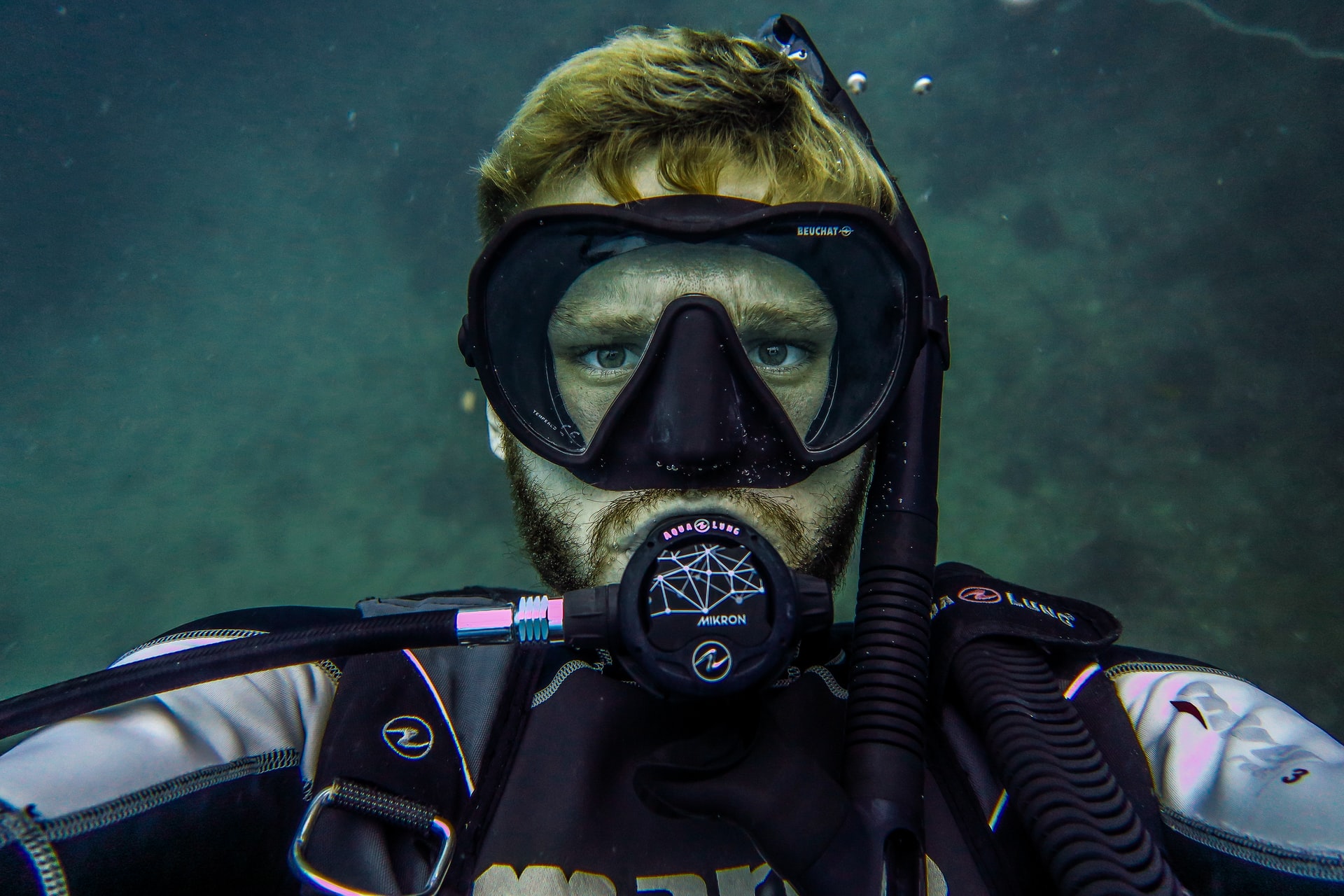
Should I Shave Before Scuba Diving? Crucial Facts (+9 Helpful Tips)
-
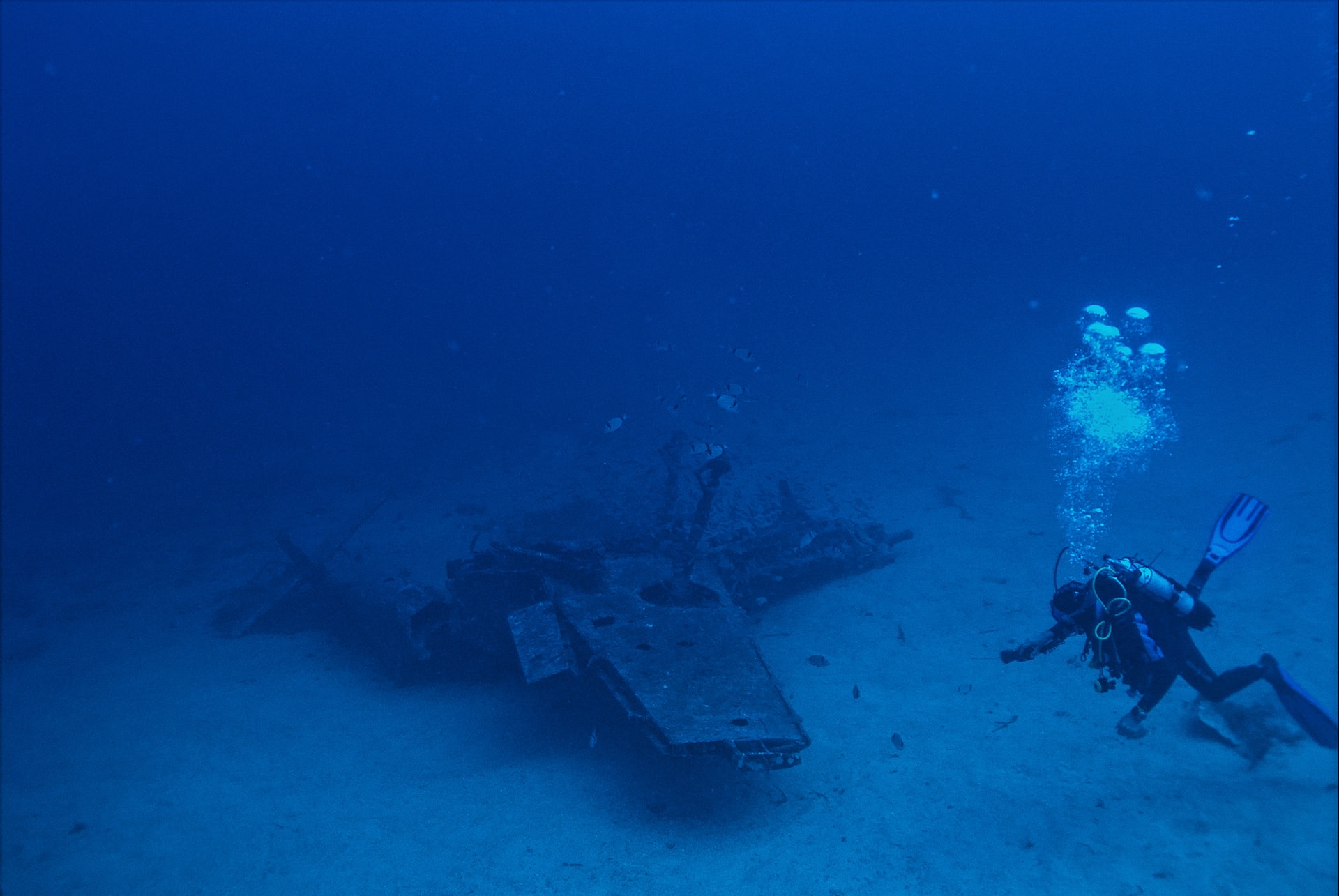
Why Do Scuba Divers Use Helium? (+Its Pros & Cons)
-
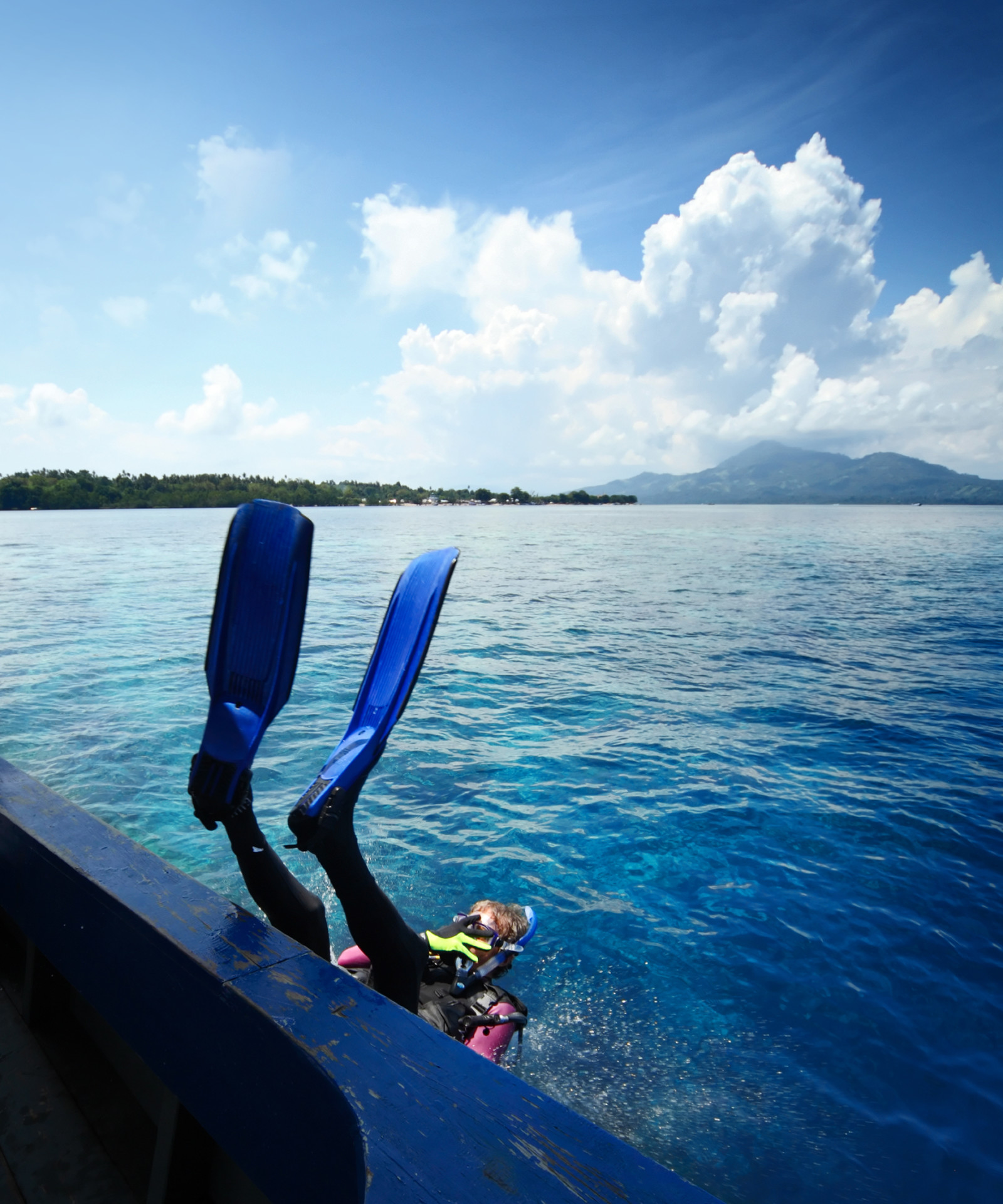
Why Do Scuba Divers Go in Backwards? (+3 Alternative Entries)
-
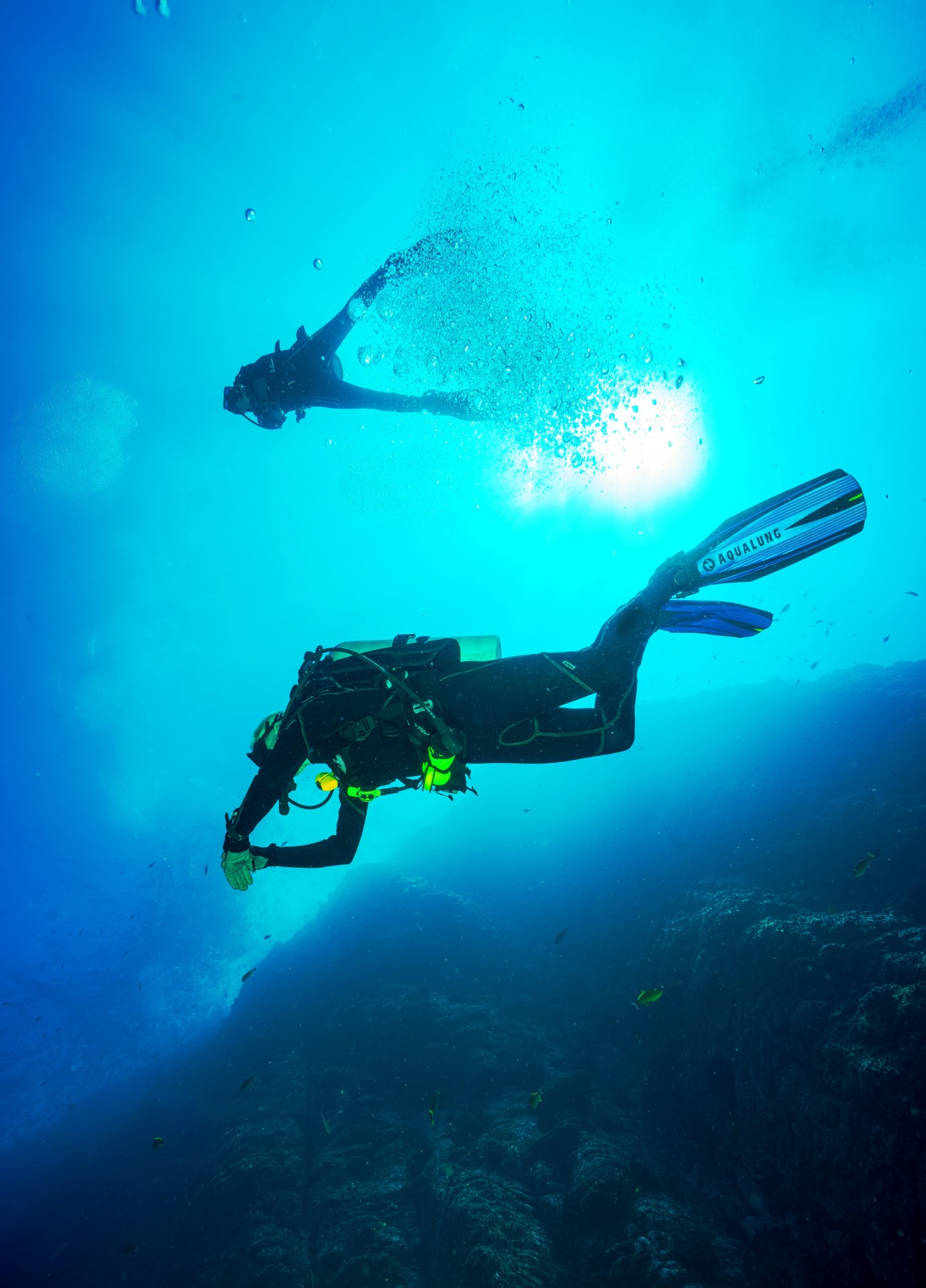
How Do Scuba Divers Sink and Float? (+Tips to Get It Right)








